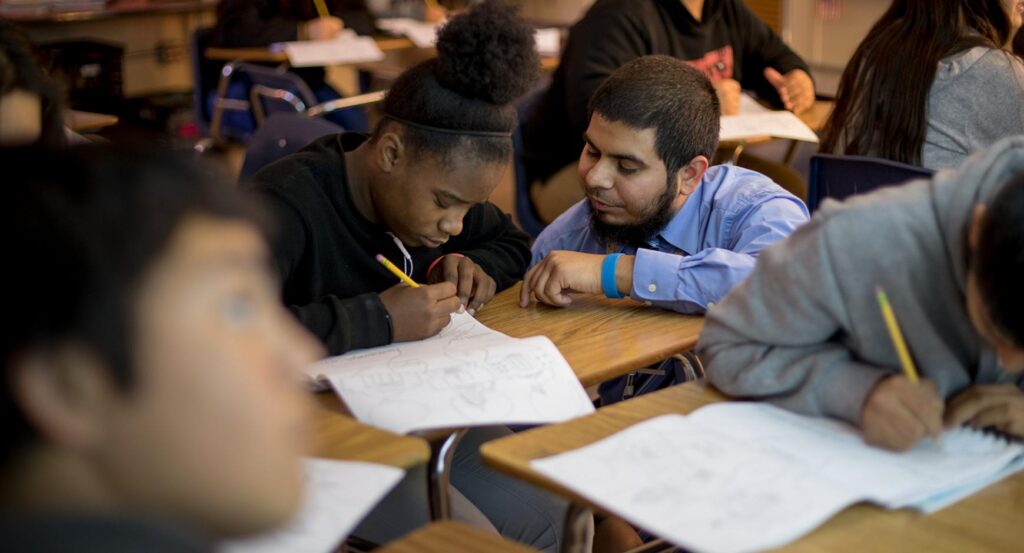Career Paths for Teachers
Career Engagement

A degree in education creates many opportunities for people who are invested in teaching and enriching the lives of children. Our teachers are thoroughly prepared to be leaders in their schools and classrooms and take on administrative, research, and leadership positions in their future careers.
A Leader in the Classroom
Our teachers complete ample hours of fieldwork and student teaching so that they are prepared from day one to create a stimulating, culturally responsive classroom where all students can learn and thrive. After you gain classroom teaching experience, opportunities may arise to expand your responsibilities in your school. Many of our teachers enhance their careers by becoming:
Mentor and Master Teachers
After teaching for three years, you are eligible to start the process of becoming a master teacher in a specified subject. As a mentor teacher, you will help student teachers and new teachers find their comfort zone in the classroom. This position will allow you to teach children as well as adults who are adjusting to being classroom teachers. Master teachers serve as leaders in their school, ensuring that students are achieving certain academic standards and while helping other teachers develop their skills as educators.
Instructional Specialists
Help improve the teaching methods of colleagues by becoming an expert in pedagogy. Instructional specialists work to improve the curriculum and ensure that children are learning through the best resources available and with technologies that keep them engaged.
Teaching Middle or High School Electives
The College of Education primarily provides programs for those interested in teaching Pre-K and elementary school students, special education students, and students in urban settings. Programs are available across the university for certification to teach middle and high school; music, art, or dance; and foreign languages.
Open Doors by Pursuing an Advanced Degree
A master’s or doctoral degree will further prepare you to improve education standards, develop innovative curriculum, and become an advocate for underrepresented communities in education.
Continue to Work in Schools
Elementary, middle and high schools have a variety of positions that support students academically, emotionally, and developmentally. Specialists can guide students who may have reading, learning, and behavioral disabilities to achieve their full potential. School librarians introduce students to reading, research, and new technologies.
Move into K-12 Administration
School administrators are responsible for ensuring that their schools are performing in a way that best serves all of their students. School administrators use data to inform decisions that serve their teachers and staff to make sure they have the resources they need by managing the budget and organization of their department. School leadership also influence the curriculum and programming that is offered throughout their district.
Higher Education and Education Policy
Teachers make great advocates for education because of their direct experience in the classroom. Master’s and doctoral degrees in education can prepare you to work in administrative positions in colleges and universities, become a researcher of issues in education, or become prepare future teachers as a professor.
Lead Change in Education
There are careers outside of schools and universities that can have a significant influence on education practices, policy, and society at large. Work for government agencies that improve education policy, organizations that work to transform education from outside schools, consulting firms that help advise teaching practices in schools or businesses, or work towards creating social change.
Opt for a Career in a Health-related Field
Many of our graduates pursue graduate programs in health-related fields. Restorative practices can serve as a springboard into careers in caregiving, holistic wellness, and community organizing.

